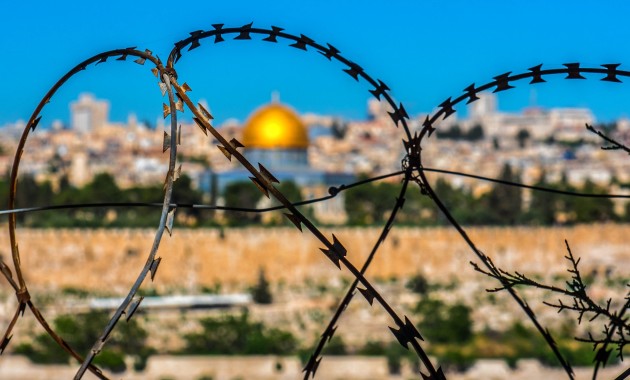
by Rachel Brustein
Dear Reform Movement, Israeli Feminism Isn’t Enough

“NFTY takes a stand on controversial issues,” declared a rabbi and staff member at the time to a room of a thousand high schoolers and Jewish professionals at NFTY (North American Federation of Temple Youth) Convention 2011. The room erupted in cheers and applause. In that moment, I felt proud to be part of a movement that took a stance on such issues. I still feel proud of the education and advocacy NFTY does on domestic issues in the United States. However, I wish I knew then what I know now—that NFTY was not speaking about the occupation in Israel-Palestine.
Almost a year prior to that moment, I sat on the floor of a synagogue classroom during a Shabbat morning service at a regional NFTY event with my female peers singing the mi chamocha prayer (the Debbie Friedman version). Within seconds we were all standing, dancing in a circle to “Miriam’s Song.”
“And the women dancing with their timbrels, followed Miriam as she sang her song…” we sang. Across the room, a line of chairs acted as our makeshift mechitza, separating us from our male peers.
This service was intended to serve as an imitation of services at the Western Wall in Jerusalem, where men and women pray separately. We learned about Women of the Wall, a feminist organization that meets monthly at the Wall for Rosh Chodesh. These women risk their safety in order to pray, sing, dance, and read Torah at the Western Wall, and are often beaten, yelled at, or thrown out by security. We learned how, as Reform Jews, it was imperative for us to support Israel as a Jewish state for all Jews—not just Orthodox Jews.
That summer, I attended URJ Kutz Camp, NFTY’s leadership camp. I participated in the track focused on learning conversational Hebrew and understanding Israeli culture. What little focus was put on Palestinians was perfunctory and shallow. Their existence was not valued, and we learned nothing about Palestinian history, or the daily struggle of life under the occupation. We talked about the importance of the Israeli Defense Forces, and never about the routine violence committed by the IDF and the Israeli government in upholding occupation. All of this was left undiscussed, as we focused on the main problem in Israel: the sexism imposed by the ultra-Orthodox onto the rest of Jewish Israeli society.
Three years later, I found myself on a Birthright trip with the Reform movement. Like most Birthright trips, we visited the Western Wall, and had a discussion after about the ways in which women’s voices are literally silenced. Once again, we talked about how amazing Women of the Wall is, without talking about the Occupation or the ways in which Israel violates Palestinians’ human and civil rights.
When I reflect on my education on Women of the Wall and Israeli feminism, I can’t help but to also think about white feminism in the United States. I think about my education on Susan B. Anthony, Eleanor Roosevelt, and Hillary Clinton. I think about how I did not learn about the Combahee River Collective or Shirley Chisholm until my senior year of college in an African-American women’s history class. Even now, there is an endless list of women of color I have yet to learn about. Similarly, in my Jewish feminist education, I have never learned about Palestinian women. Through the neglect of my teachers as well as my own, I have never explored the contributions of and resistance lead by Palestinian women. Nor was I given the opportunity to learn about Israeli and Jewish women who stood up against the Occupation or in favor of Palestinian rights.
I respect that URJ President Rabbi Rick Jacobs has spoken out against the Occupation and continuous settlement building in the West Bank. However, how come I was never told about this in the many youth programs I participated in under the auspices of the Reform movement? Why is the Reform Movement afraid to speak their truth to their youth and teens? Why was I taught about Women of the Wall’s resistance to sexist laws, but not about the Israeli and Palestinian resistance to the Occupation? Why did I learn about Women of the Wall, but not activist organizations Breaking the Silence or B’Tselem? Today, I call upon the Reform movement to do better. I ask that the Reform movement takes the critical questions it implores on social justice and bring those questions to youth programs on Israel. Since I graduated from high school, NFTY has launched a racial justice initiative, committing itself to training their teens and leaders in anti-racism work. If it is not “too complicated” to deeply reflect on racial privilege and fight white supremacy, it should not be “too complicated” to talk about the Occupation.
Rachel Brustein is a volunteer organizer with IfNotNow, a movement of young Jews working to end our communities’ institutional support for the Occupation. She participated in the Avodah Service Corps in Washington, D.C. last year, and currently lives in her hometown of Chicago.
The views and opinions expressed in this article are the author’s own and do not necessarily reflect those of Lilith Magazine.